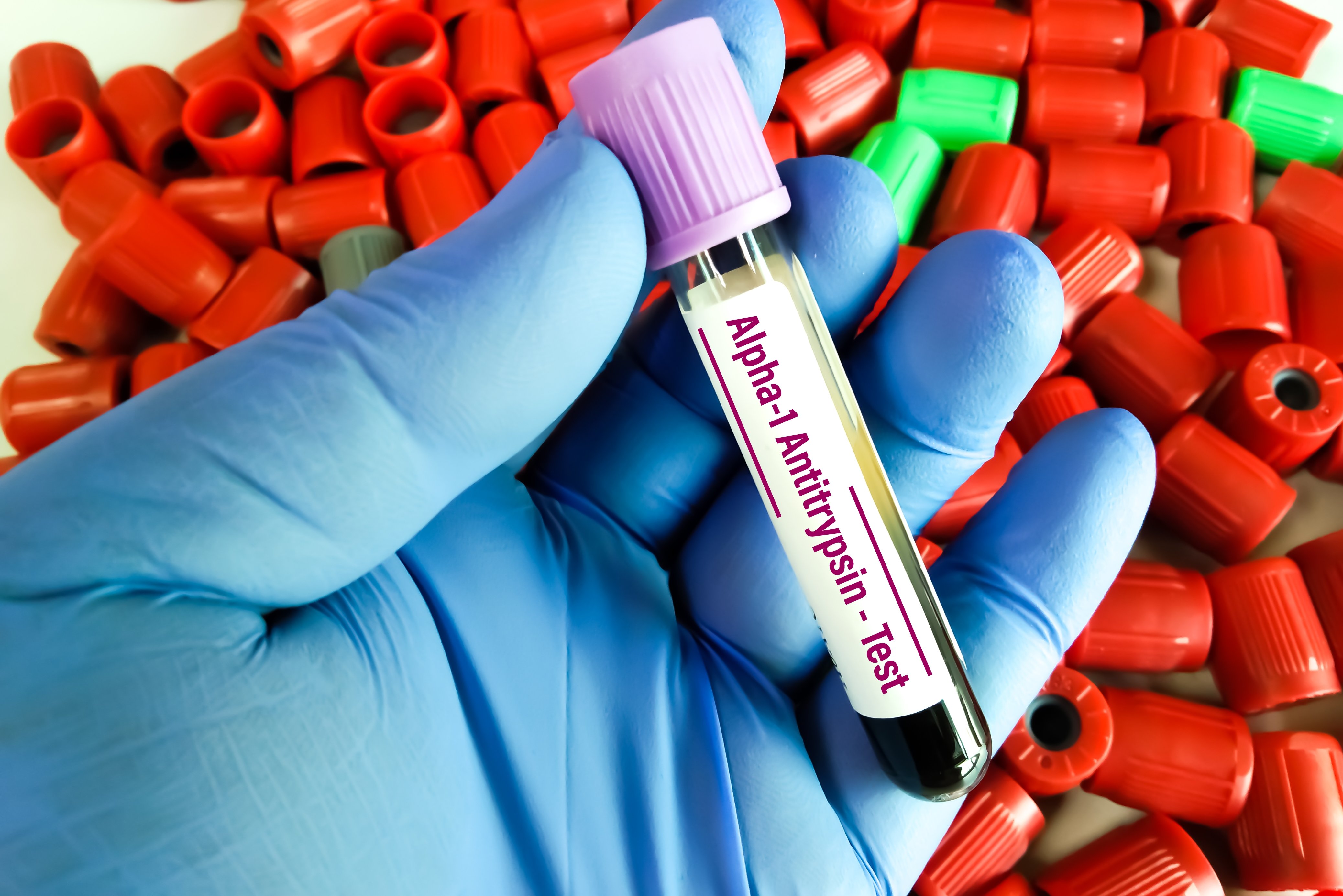
(Vienna, 22 August 2022) Alpha-1-antitrypsin deficiency is a genetic disorder that often leads to serious damage to the lungs and liver. Although there are already therapeutic measures available for alleviating pulmonary emphysema caused by the missing enzyme, the precise background to the associated liver damage was hitherto unclear and there was no known treatment option. Researchers at MedUni Vienna have now played a key role in characterising liver involvement in alpha-1-antitrypsin deficiency and contributed to the clinical development of the first ever treatment option. The resulting scientific work was recently published in the New England Journal of Medicine and JHEP Reports.
Although medical science was already aware that patients with severe forms of alpha-1-antitrypsin deficiency often develop cirrhosis, the precise risk of this complication could not be determined until now. The current research shows that those patients who carry two defective copies ("Z" copies) of the alpha-1 antitrypsin gene are particularly at risk. In contrast, carriers of only one "Z" copy only go on to develop cirrhosis if other liver diseases are present. The research team led by Mattias Mandorfer from the Division of Gastroenterology and Hepatology at MedUni Vienna's Department of Medicine III also identified influenceable risk factors. For example, obesity was found to worsen the course of liver disease.
Inhibiting production of the defective enzyme
The enzyme alpha-1antitrypsin is produced in the liver and carried in the bloodstream to the lungs, where it has a protective effect on tissue. Patients with congenital alpha-1 antitrypsin deficiency produce a defective version of this protein that is unable to leave the hepatocyte and, hence, never reaches the lungs. Since accumulation of defective alpha-1antitrypsin in hepatocytes can cause liver damage and lead to associated liver fibrosis and cirrhosis, the newly discovered therapeutic approach aims to inhibit its production. A recent study published in the New England Journal of Medicine examined the efficacy of a type of gene therapy (fazirsiran) that inhibits the production of alpha-1 antitrypsin in hepatocytes. The international research team, which included MedUni Vienna, found that this treatment not only reduced the accumulation of defective alpha-1 antitrypsin and, hence, liver damage, but, in some cases, also brought about regression of liver fibrosis.
"Provided that larger, placebo-controlled studies confirm our promising results, a treatment for liver involvement in severe alpha-1-antitrypsin deficiency, that is in patients with two "Z" copies, could be available in the future," said Mattias Mandorfer, summarising the results of the therapeutic trial. "Furthermore, the results of our most recent study indicate that a reduction in the accumulation of defective alpha-1 antitrypsin could also have beneficial effects in the much more common carriers (only one "Z" copy), if advanced liver disease is already present," adds Lorenz Balcar from the Division of Gastroenterology and Hepatology at MedUni Vienna's Department of Medicine III.
The severe form (two "Z" copies) of alpha-1-antitrypsin deficiency affects 0.05% of the population. Since in everyday clinical practice the associated lung and liver complications are not always identified as being linked to the genetic defect, it is likely that many cases go unreported. Approximately 3% of the population are carriers (only one "Z" copy) , however, the frequency is considerably higher higher in patients with advanced liver disease.
About the publications:
New England Journal of Medicine
Fazirsiran for Liver Disease Associated with Alpha1-Antitrypsin Deficiency
Strnad P, Mandorfer M, Choudhury G, Griffiths W, Trautwein C, Loomba R, Schluep T, Chang T, Yi M, Given BD, Hamilton JC, San Martin J, Teckman JH
Doi: 10.1056/NEJMoa2205416
https://www.nejm.org/doi/10.1056/NEJMoa2205416
JHEP Reports
The alpha-1 antitrypsin Pi*Z allele is an independent risk factor for liver transplantation/death in patients with advanced chronic liver disease
Balcar L, Scheiner B, Urheu M, Weinberger P, Paternostro R, Simbrunner B, Hartl L, Jachs M, Bauer D, Semmler G, Willheim C, Pinter M, Ferenci P, Trauner M, Reiberger T, Stättermayer AF, Mandorfer M
Doi: 10.1016/j.jhepr.2022.100562
https://doi.org/10.1016/j.jhepr.2022.100562